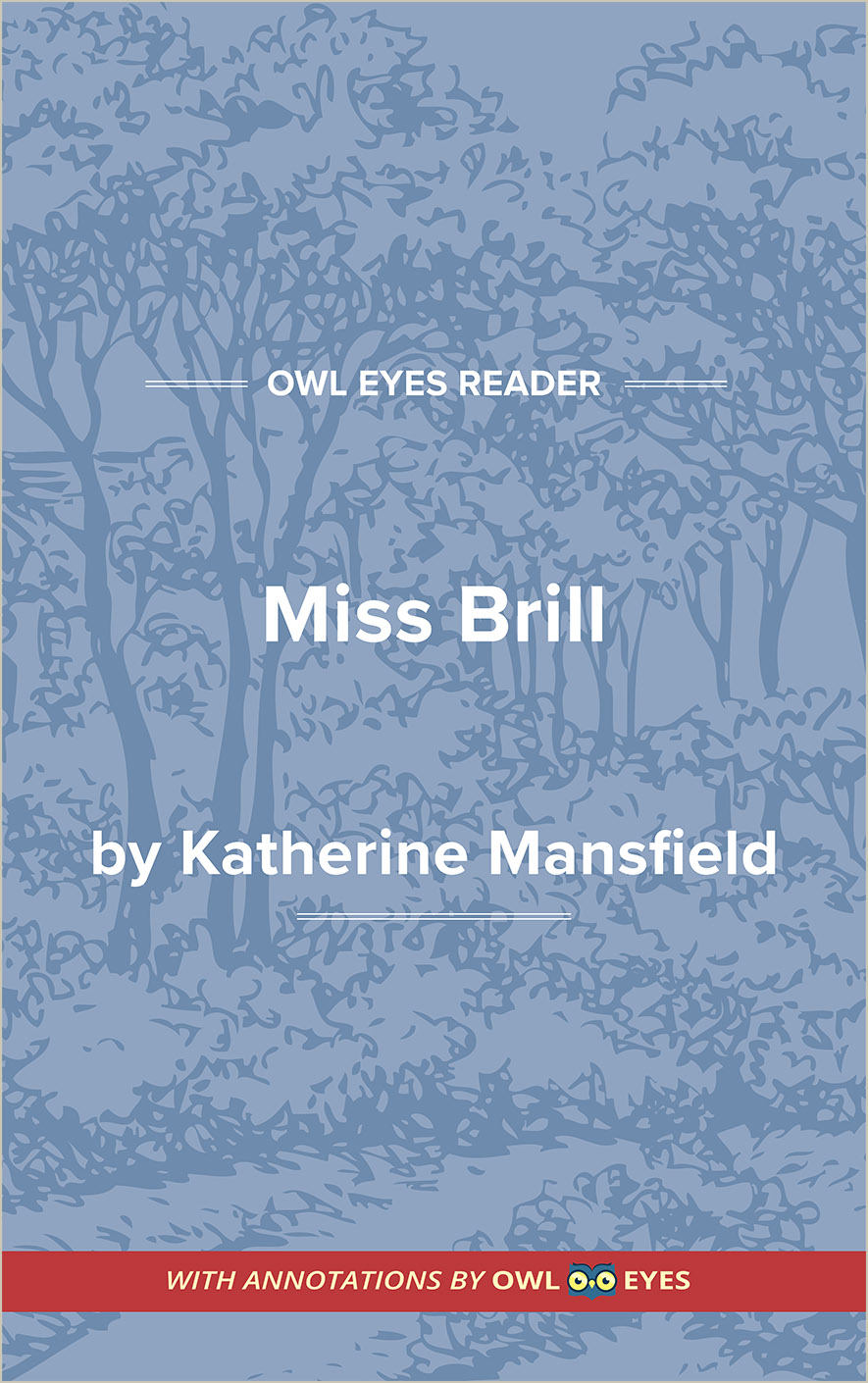Study Guide
Analysis Pages
Summary
“Miss Brill” brings to life one of Mansfield’s many lonely women, and the reader lives through this story in the main character’s mind without the author’s making any obvious comment. As the story opens, it is a Sunday afternoon in the autumn; a chill is in the air. In her room, Miss Brill, a lonely English teacher, prepares to go as usual to the Public Gardens in what appears to be a French city. She happily unpacks the fur she will wear for the first time this season, a piece that includes the head of a small animal, perhaps a fox. Miss Brill strikes the reader as imaginative, for she pretends she hears what the dead animal is thinking after being in storage for many months. She then feels a tinge of sadness. In her introductory paragraph, Mansfield’s details evoke the fragility of Miss Brill’s happiness.
At the Gardens, Miss Brill listens to the band play and watches the people. It is her idea of bliss. Though she yearns to talk to them, she must be content to listen. An old couple disappoints her, for they are silent; last week she heard a memorable conversation about eyeglasses—memorable to her, but trivial to the reader. Then Miss Brill takes her first step away from the superficiality of the afternoon. She reflects that most of the people she sees at the Gardens are old and strange. She hopes for their happiness.
In a surprise ending typical of the author, Mansfield then includes two very short paragraphs. The first points beyond the gardens to the sky and sea, as if to suggest that there is a wider world than what the reader has experienced so far. The second brings the reader back to the banality of the park, as it reproduces the sound of the band.
Miss Brill’s experience deepens. She does not simply listen; she imagines what the people she sees are saying. Mansfield employs dramatic irony when she hints that the woman who Miss Brill thinks is innocently chatting is actually a prostitute. Then Miss Brill stumbles on a kind of truth: They are all acting in a play. She (Miss Brill) is in the play too, with a role that she plays every week. Miss Brill has turned her understanding of how drama underlies public events into a consolation...
(The entire page is 608 words.)
Owl Eyes subscribers get unlimited access to our expert annotations, analyses, and study guides on your favorite texts. Master the classics for less than $5/month!

